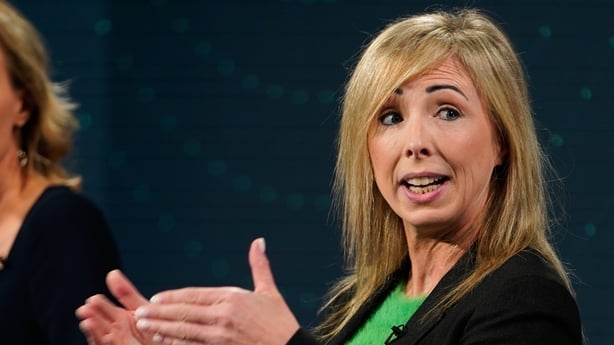The Irish Data Protection Commissioner has said Artificial Intelligence (AI) is an area that needs regulation and now is the right time for a conversation on the issue.
Helen Dixon was speaking at the Bloomberg New Economy Gateway Conference in Wicklow.
She added that her office is still in the process of understanding AI technology and what it means for data regulation.
Ms Dixon said the new data protection regime in Ireland will look a little different as her term in the role comes to an end later this year.
Last year, the Government announced plans to split the role and appoint three Data Protection Commissioners.

"My own second and final term as commissioner will be coming to an end relatively shortly, so the future will look a little bit different in terms of the decision-making and governance model of the Irish Data Protection Commission," Ms Dixon said.
Asked what advice she would give her successors, Ms Dixon said they should embrace the global reach that the office now has.
Critics of the Data Protection Commission (DPC) have accused the office of being too soft on big tech and of taking too long to complete its investigations.
At today's conference, Ms Dixon once again defended the work of the DPC.
"Some of the people who comment on speed, understand very little about the process of conducting an investigation, the complexity of finding the facts and the implementation of fair procedures, these things take time to do properly," Ms Dixon said.
Ms Dixon said her office will issue a ruling on Facebook's EU-US data transfers before 12 May.
'Genie won't go back in the bottle' on AI, says UK security minister
Elsewhere, the UK's security minister has suggested that calls to suspend or stop the development of AI due to fears about the new technology are misguided.
Tom Tugendhat, addressing the CyberUK conference in Belfast, said he understands fears about the potential danger of AI but added that the "genie won't go back in the bottle".
Italy said last month that it will temporarily block the artificial intelligence software ChatGPT amid global debate about the power of such new tools.
The AI systems powering such chatbots, known as large language models, are able to mimic human writing styles based on the huge trove of digital books and online writings they have ingested.
There is also significant debate about the potential of the new technology, and Mr Tugendhat said the UK can become a leader in the area if the government and private sector can work together.
However, he acknowledged that criminals and cyber attackers are aware of the uses of AI.
"Cyber attacks work when they find vulnerabilities. AI will cut the cost and complications of cyber attacks by automating the hunt for the chinks in our armour," he said.
"Already AI can confuse and copy, spreading lies and committing fraud.
"Natural language models can mimic credible news sources, pushing disingenuous narratives at huge scale, and AI image and video generation will get better."
The security minister also acknowledged the threat posed by Russia, as well as China's interest in AI.
"Given the stakes, we can all understand the calls to stop AI development altogether," he said. "But the genie won't go back in the bottle any more than we can write laws against maths.
"(Russian President Vladimir) Putin has a longstanding strategic interest in AI and has commented that whoever becomes leader in this sphere will rule the world.
He said: "As for the safety of the technology itself, it's essential that, by the time we reach the development of AGI (artificial general intelligence), we are confident that it can be safely controlled and aligned to our values and interests.
"Solving this issue of alignment is where our efforts must lie, not in some King Canute-like attempt to stop the inevitable but in a national mission to ensure that, as super-intelligent computers arrive, they make the world safer and more secure."
Additional reporting: PA







